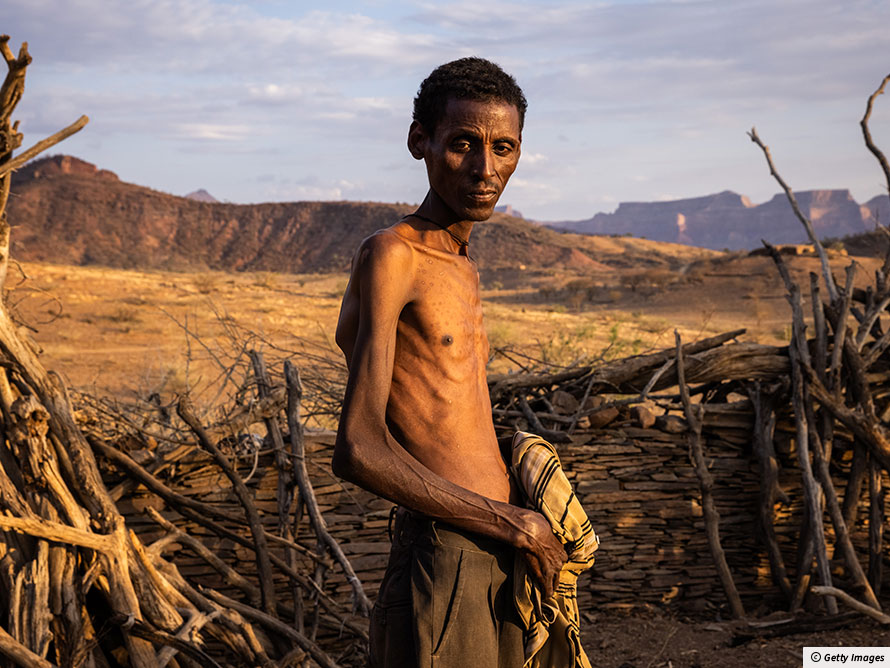Should this be on every front page? People are starving in this beleaguered African country — yet Western news sources have barely paid the issue any attention.
Desperation in Ethiopia as famine deepens
 Fatigue: Crises closer to home might be the reason that this disaster is being missed by many news outlets.
Fatigue: Crises closer to home might be the reason that this disaster is being missed by many news outlets. Glossary
Ethiopia - A landlocked country in Africa. With a population of about 120 million, Ethiopia represents a melting pot of ancient cultures.
Famine - A widespread scarcity of food.
Separatists - People who favour separation from a group or religion to form their own.
Massacres - Deliberate and brutal killings of people.
United Nations - An international organisation focused on keeping peace. Its refugee agency, the UNHCR, aims to assist refugees around the world.
Drought - A time when there is not enough water and the ground is very dry.
Crisis fatigue - A burnout response to prolonged exposure to a crisis.
Philosopher - A thinker who comes up with ideas about big questions in life.
Rwandan genocide - During a period of 100 days in 1994, more than 500,000 people were killed during a campaign of mass murder during the Rwandan Civil War. Most of the victims were members of the minority Tutsi group, as well as some moderate Hutu and Twa.
Humanitarian - People or views that advocate for human welfare
